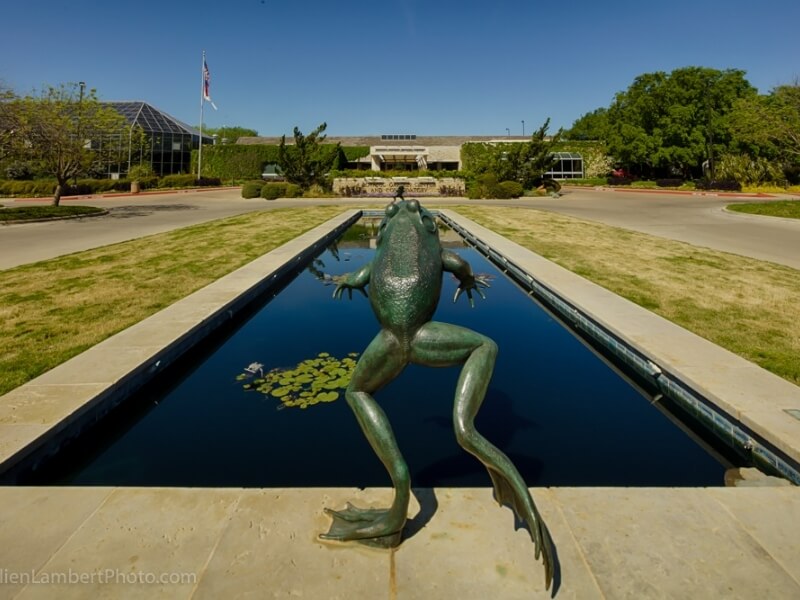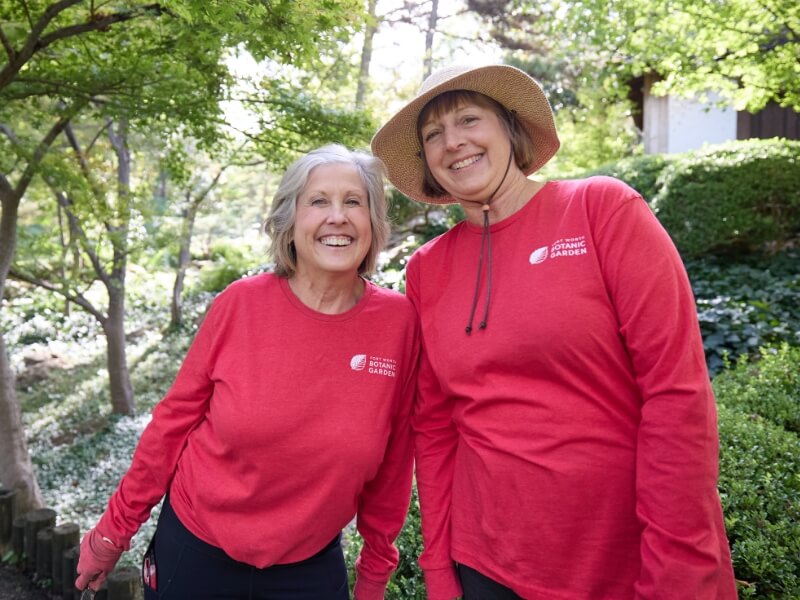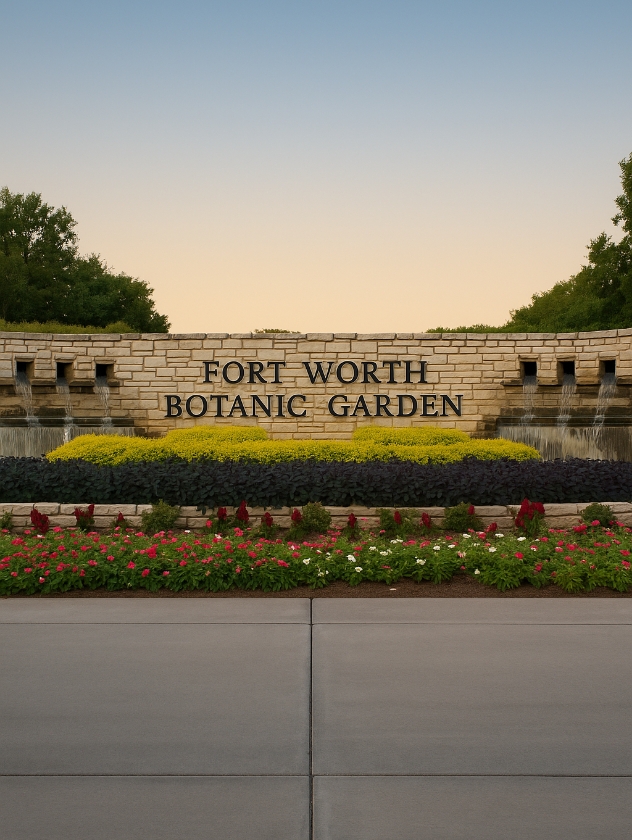Botanical Adventures Await
Check out our full calendar
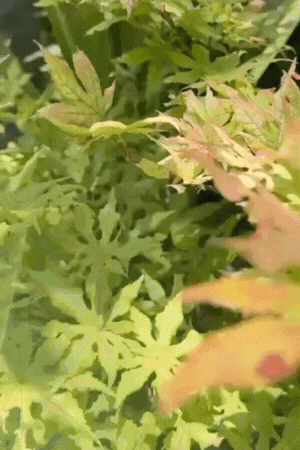
Creative Explorations: Bedazzled Bug Buddies
Explore new artistic media and techniques through plant-based projects with a fun and inspiring local artist. These monthly classes are appropriate for all experience levels and promote enjoyment over perfection. Reawaken your creative spirit with our instructor’s open-ended, judgment-free approach to art! Registration includes Garden admission for the day—we encourage you to explore the Garden...
- adult education classes
- classes
- creative arts classes
- events
-
Date
Jul 15, 2025
- Time 6:00 PM - 8:00 PM
- Location Botanical Research Institute of Texas
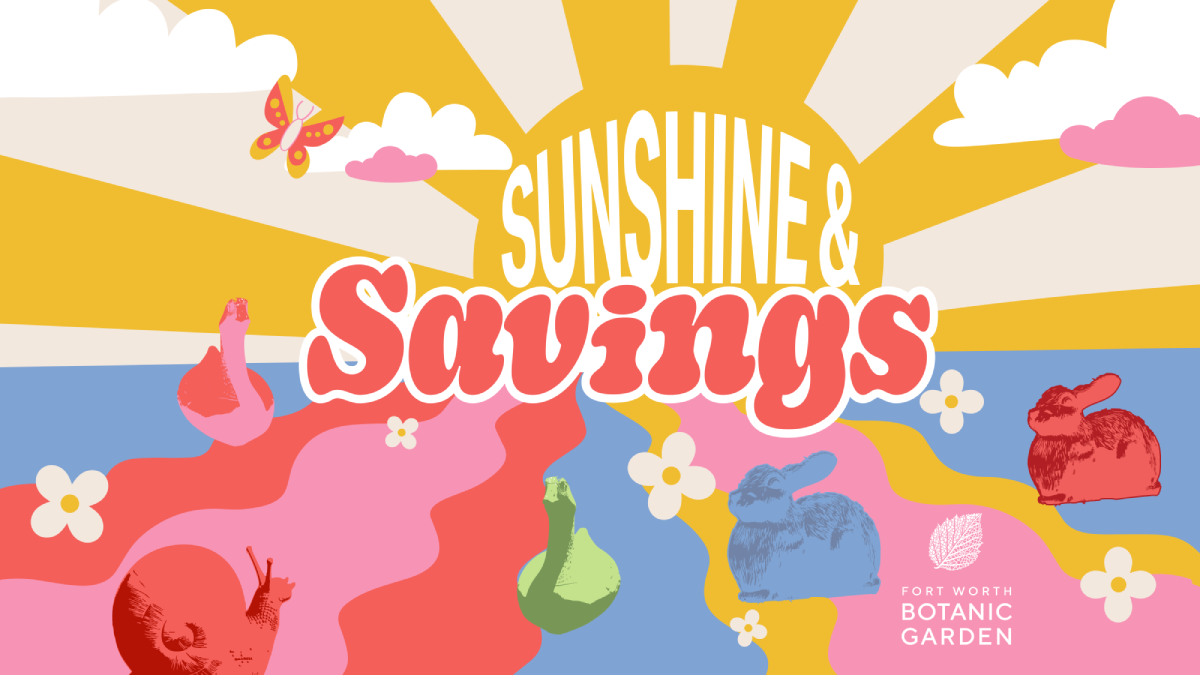
Sunshine & Savings: Discount Day
Admission is over 50% off every Thursday from July 3 through August 28 this summer! We’ll also have two additional discounted Saturdays scheduled on July 26 & Aug 30. It’s the perfect time to explore the beauty of the Fort Worth Botanic Garden with your family and friends! $5 Adults $3 Seniors & Kids (6-15)...
- events
- family-friendly events
- plant sales & shopping
-
Date
Jul 17, 2025
- Time All Day
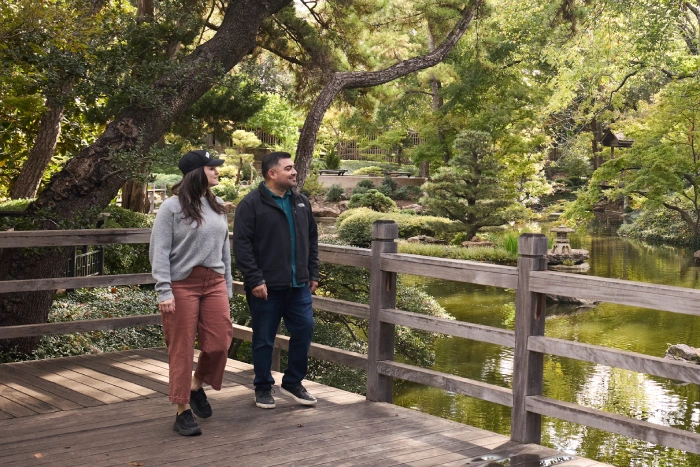
Members-Only Quiet Hour Walk
Step into serenity every Saturday with our new weekly Members-Only Quiet Hour Walk. It’s a peaceful start to your weekend at FWBG! What to Expect: A 60-minute silent walk led by a mindfulness guide Gentle movement breaks using easy-to-follow practices A peaceful, grounding experience focusing on the senses Note: The path includes uneven...
- adult education classes
- classes
- events
- free for members
- health & wellness
- learn
- members-only events
-
Date
Jul 19, 2025
- Time 7:30 AM - 8:30 AM
- Location Leonard Courtyard

Sunshine & Savings: Discount Day
Admission is over 50% off every Thursday from July 3 through August 28 this summer! We’ll also have two additional discounted Saturdays scheduled on July 26 & Aug 30. It’s the perfect time to explore the beauty of the Fort Worth Botanic Garden with your family and friends! $5 Adults $3 Seniors & Kids (6-15)...
- events
- family-friendly events
- plant sales & shopping
-
Date
Jul 24, 2025
- Time All Day

Sunshine & Savings: Discount Day
Admission is over 50% off every Thursday from July 3 through August 28 this summer! We’ll also have two additional discounted Saturdays scheduled on July 26 & Aug 30. It’s the perfect time to explore the beauty of the Fort Worth Botanic Garden with your family and friends! $5 Adults $3 Seniors & Kids (6-15)...
- events
- family-friendly events
- plant sales & shopping
-
Date
Jul 26, 2025
- Time All Day

Members-Only Quiet Hour Walk
Step into serenity every Saturday with our new weekly Members-Only Quiet Hour Walk. It’s a peaceful start to your weekend at FWBG! What to Expect: A 60-minute silent walk led by a mindfulness guide Gentle movement breaks using easy-to-follow practices A peaceful, grounding experience focusing on the senses Note: The path includes uneven...
- adult education classes
- classes
- events
- free for members
- health & wellness
- learn
- members-only events
-
Date
Jul 26, 2025
- Time 7:30 AM - 8:30 AM
- Location Leonard Courtyard

Sunshine & Savings: Discount Day
Admission is over 50% off every Thursday from July 3 through August 28 this summer! We’ll also have two additional discounted Saturdays scheduled on July 26 & Aug 30. It’s the perfect time to explore the beauty of the Fort Worth Botanic Garden with your family and friends! $5 Adults $3 Seniors & Kids (6-15)...
- events
- family-friendly events
- plant sales & shopping
-
Date
Jul 31, 2025
- Time All Day

Drawing in the Garden: BRIT Library Collections
Discover and polish your drawing skills at the Garden! Bring your favorite portable medium and explore a new artistic focus each month. Our award-winning artist instructor will start with a demonstration, then answer questions and provide tips and one-on-one attention throughout a free-drawing session. We will end by gathering to share our experiences and drawings. Registration includes Garden admission for the day—we encourage you to explore the Garden after class!
- adult education classes
- classes
- creative arts classes
- learn
-
Date
Aug 2, 2025
- Time 9:00 AM - 11:00 AM
- Location BRIT Library

Members-Only Quiet Hour Walk
Step into serenity every Saturday with our new weekly Members-Only Quiet Hour Walk. It’s a peaceful start to your weekend at FWBG! What to Expect: A 60-minute silent walk led by a mindfulness guide Gentle movement breaks using easy-to-follow practices A peaceful, grounding experience focusing on the senses Note: The path includes uneven...
- adult education classes
- classes
- events
- free for members
- health & wellness
- learn
- members-only events
-
Date
Aug 2, 2025
- Time 7:30 AM - 8:30 AM
- Location Leonard Courtyard

Gentle Yoga: August
Join our recurring all-level yoga class to move, stretch, and awaken your mind and body. You’ll learn unique connections within the body to increase muscle elasticity, loosen joints, and gain flexibility. Registration includes Garden admission for the day—we encourage you to explore the Garden after class. In June, July and August, we will keep cool...
- adult education classes
- classes
- health & wellness
- learn
-
Aug 6, 13, 20, & 27, 20259:00 AM - 10:00 AM
- Location Botanical Research Institute of Texas

Sunshine & Savings: Discount Day
Admission is over 50% off every Thursday from July 3 through August 28 this summer! We’ll also have two additional discounted Saturdays scheduled on July 26 & Aug 30. It’s the perfect time to explore the beauty of the Fort Worth Botanic Garden with your family and friends! $5 Adults $3 Seniors & Kids (6-15)...
- events
- family-friendly events
- plant sales & shopping
-
Date
Aug 7, 2025
- Time All Day

Dog Days: August
This weekend is bound to be a doggone good time! Enjoy two full days of hanging out with your pup in the beauty of the Garden on August 9-10. Dog Days will be held during regular garden hours (8 a.m. – 6 p.m.) on each of these days, and is regular admission for humans and...
- dog-friendly events
- events
- family-friendly events
- free for members
-
Date
Aug 9 - 10, 2025
- Time All Day

Members-Only Quiet Hour Walk
Step into serenity every Saturday with our new weekly Members-Only Quiet Hour Walk. It’s a peaceful start to your weekend at FWBG! What to Expect: A 60-minute silent walk led by a mindfulness guide Gentle movement breaks using easy-to-follow practices A peaceful, grounding experience focusing on the senses Note: The path includes uneven...
- adult education classes
- classes
- events
- free for members
- health & wellness
- learn
- members-only events
-
Date
Aug 9, 2025
- Time 7:30 AM - 8:30 AM
- Location Leonard Courtyard

Sunshine & Savings: Discount Day
Admission is over 50% off every Thursday from July 3 through August 28 this summer! We’ll also have two additional discounted Saturdays scheduled on July 26 & Aug 30. It’s the perfect time to explore the beauty of the Fort Worth Botanic Garden with your family and friends! $5 Adults $3 Seniors & Kids (6-15)...
- events
- family-friendly events
- plant sales & shopping
-
Date
Aug 14, 2025
- Time All Day

Members-Only Quiet Hour Walk
Step into serenity every Saturday with our new weekly Members-Only Quiet Hour Walk. It’s a peaceful start to your weekend at FWBG! What to Expect: A 60-minute silent walk led by a mindfulness guide Gentle movement breaks using easy-to-follow practices A peaceful, grounding experience focusing on the senses Note: The path includes uneven...
- adult education classes
- classes
- events
- free for members
- health & wellness
- learn
- members-only events
-
Date
Aug 16, 2025
- Time 7:30 AM - 8:30 AM
- Location Leonard Courtyard
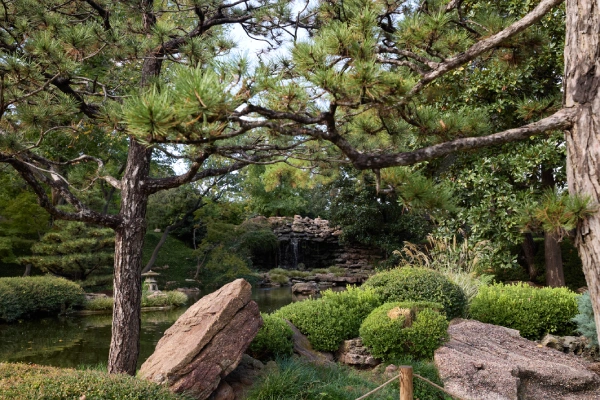
Discover Forest Bathing: August
Forest Bathing, or shinrin-yoku, is the deliberate practice of immersion in nature using mindfulness and the senses. This practice originated in Japan and allows the body, mind and spirit to relax and rejuvenate surrounded by the healing powers of nature. This introductory class begins by discussing the guiding principles of shinrin-yoku that enable us to...
- adult education classes
- classes
- health & wellness
- learn
-
Date
Aug 16, 2025
- Time 9:00 AM - 10:30 AM
- Location Japanese Garden
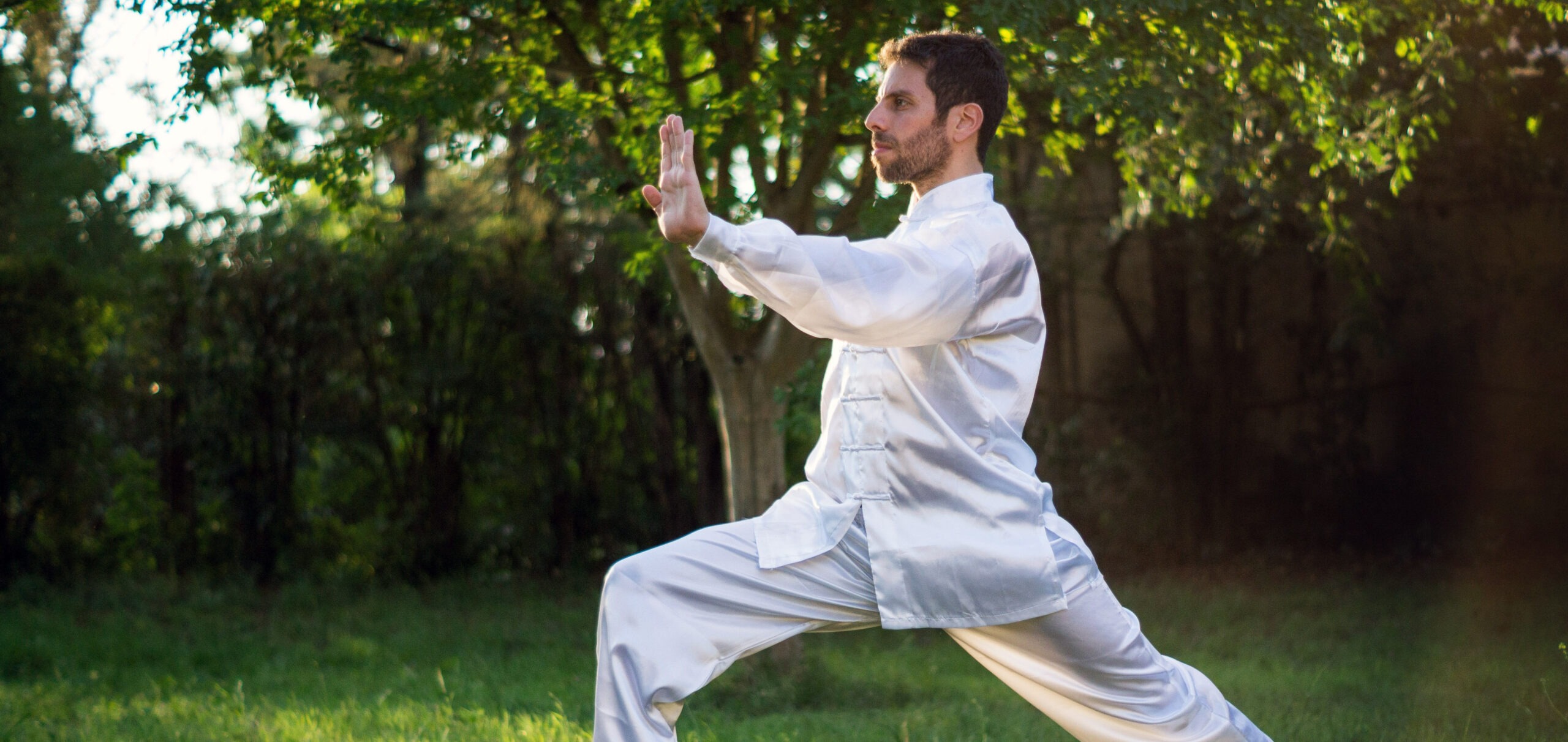
QiGong Dong Stick: 6-Part Series
Experience the meditative movement of QiGong Dong Stick, a gentle yet powerful 16-movement practice using a five-foot stick. This standing form promotes balance, coordination, and flexibility, through simple, flowing motions that are easy to follow. Over the course of six weeks, we’ll stretch and strengthen the body while cultivating intention and awareness. All sessions will...
- adult education classes
- classes
- health & wellness
- learn
-
Aug 18, 25, Sept 8, 15, 22, & 293:00 PM - 4:00 PM
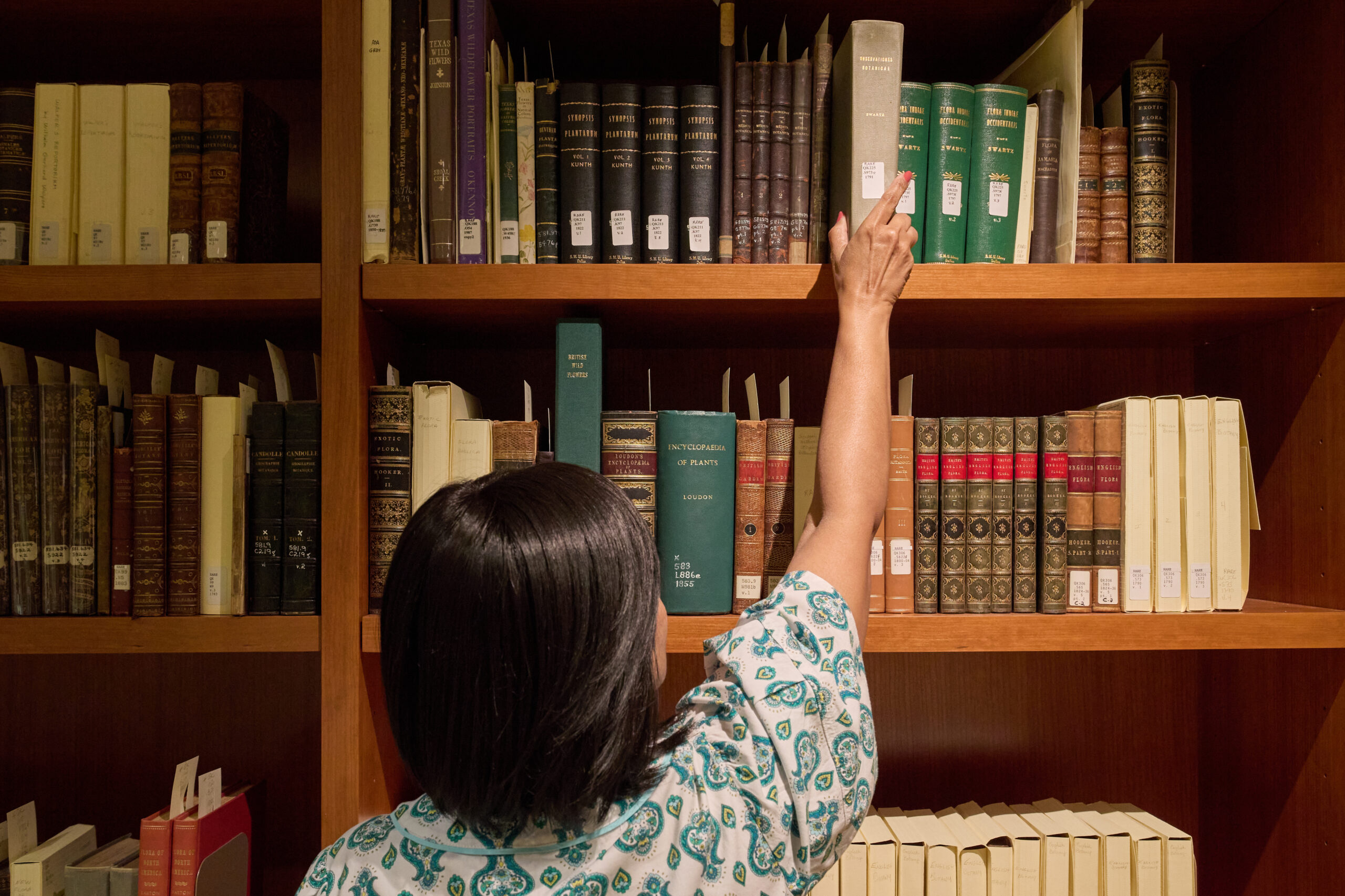
BRIT Reads Book Club: “The Bird Way” by Jennifer Ackerman
Do you love to read? Are you passionate about botany, natural history, sustainability and similar topics? Then, you’ll love the BRIT Reads Book Club! This informal group meets every other month to discuss a chosen book, in-person or online. We begin with a moderator summarizing the book and reviewing its key points. Then there is...
- adult education classes
- events
- free
- learn
- lectures & talks
-
Date
Aug 18, 2025
- Time 12:00 PM - 1:00 PM
- Location BRIT Library

Sunshine & Savings: Discount Day
Admission is over 50% off every Thursday from July 3 through August 28 this summer! We’ll also have two additional discounted Saturdays scheduled on July 26 & Aug 30. It’s the perfect time to explore the beauty of the Fort Worth Botanic Garden with your family and friends! $5 Adults $3 Seniors & Kids (6-15)...
- events
- family-friendly events
- plant sales & shopping
-
Date
Aug 21, 2025
- Time All Day

Member Orientation & Tour: BRIT
Wondering what your FWBG membership includes or what exciting events are coming up? Join us for our quarterly Member Orientation, a friendly and informative gathering for both new and renewing members! Enjoy a light brunch and a warm welcome as we share: Part 2 of our 4-part series on the Garden’s rich history Information about...
- events
- family-friendly events
- free for members
- members-only events
-
Date
Aug 23, 2025
- Time 10:00 AM - 11:30 AM
- Location The Commons at the Botanical Institute of Texas

Sunshine & Savings: Discount Day
Admission is over 50% off every Thursday from July 3 through August 28 this summer! We’ll also have two additional discounted Saturdays scheduled on July 26 & Aug 30. It’s the perfect time to explore the beauty of the Fort Worth Botanic Garden with your family and friends! $5 Adults $3 Seniors & Kids (6-15)...
- events
- family-friendly events
- plant sales & shopping
-
Date
Aug 28, 2025
- Time All Day

Sunshine & Savings: Discount Day
Admission is over 50% off every Thursday from July 3 through August 28 this summer! We’ll also have two additional discounted Saturdays scheduled on July 26 & Aug 30. It’s the perfect time to explore the beauty of the Fort Worth Botanic Garden with your family and friends! $5 Adults $3 Seniors & Kids (6-15)...
- events
- family-friendly events
- plant sales & shopping
-
Date
Aug 30, 2025
- Time All Day

Members-Only Quiet Hour Walk
Step into serenity every Saturday with our new weekly Members-Only Quiet Hour Walk. It’s a peaceful start to your weekend at FWBG! What to Expect: A 60-minute silent walk led by a mindfulness guide Gentle movement breaks using easy-to-follow practices A peaceful, grounding experience focusing on the senses Note: The path includes uneven...
- adult education classes
- classes
- events
- free for members
- health & wellness
- learn
- members-only events
-
Date
Aug 30, 2025
- Time 7:30 AM - 8:30 AM
- Location Leonard Courtyard
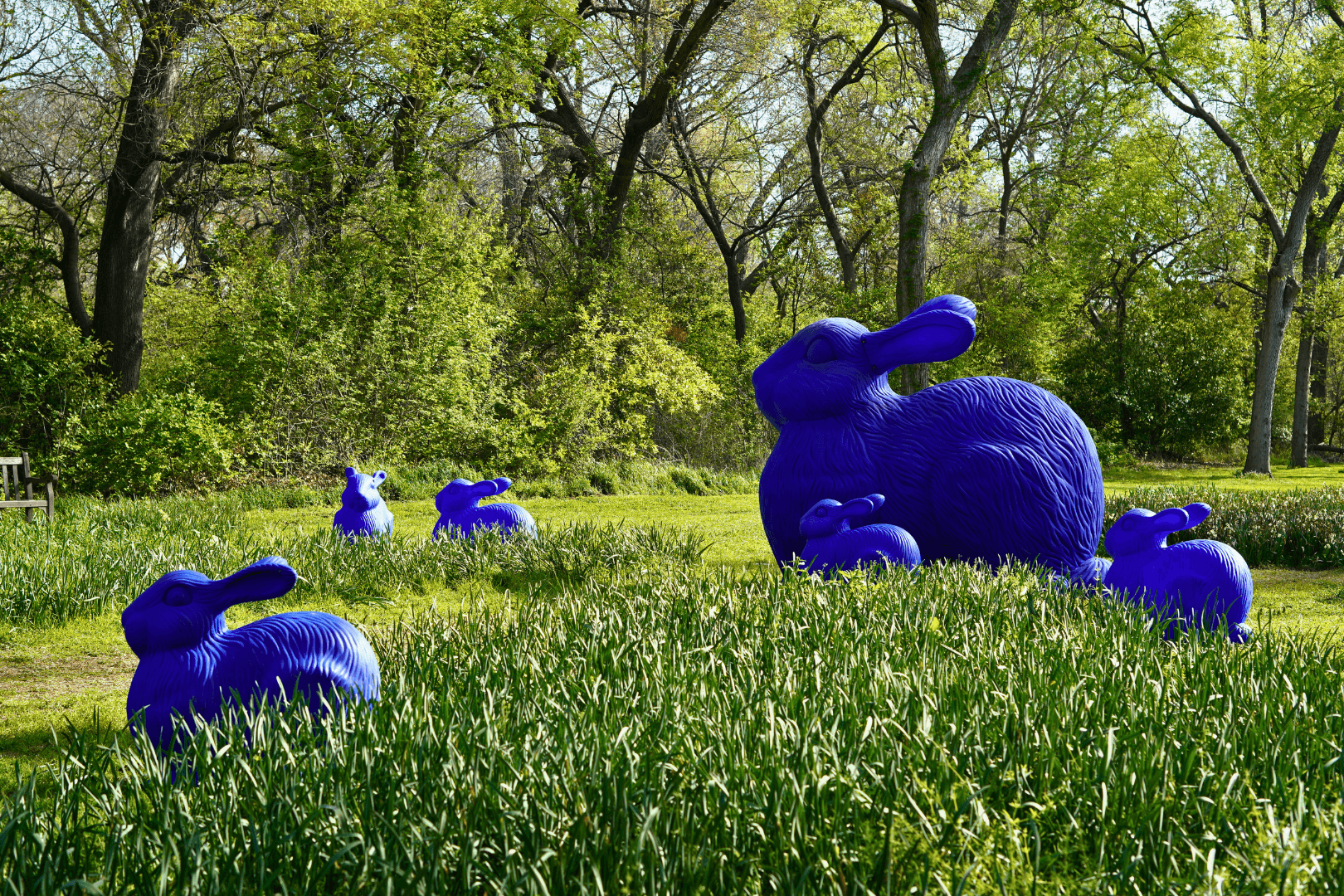
Garden Exhibit: Cracking Art
Visitors can stroll through the Garden and discover vibrant sculptures of rabbits, elephants, geese, snails, wolves, crocodiles, and swallows, seamlessly integrated into the natural landscape. These captivating artworks, crafted from regenerated plastic, showcase the innovative possibilities of recycled materials while encouraging a greater appreciation for sustainability and eco-conscious living. Cracking Art is perfect for...
- exhibits
- garden exhibits
-
April 1 - Sep 1, 20258:00 AM - 6:00 PM | All Day
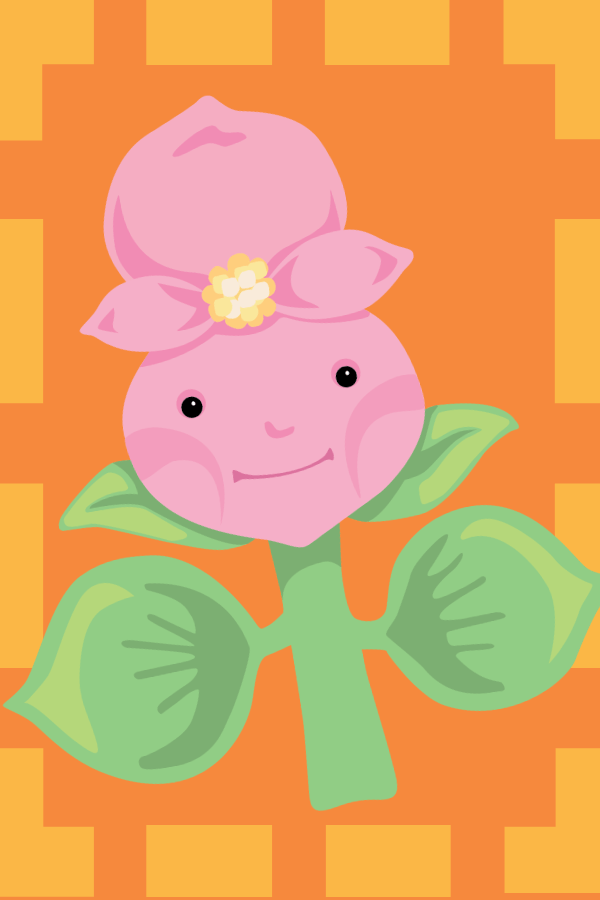
Bella’s Book and Nature Club: September
Click here to register now! Children 18 months to 5 years and their families are invited to join Bella the Begonia at BRIT on the first Wednesday of each month. We’ll discuss nature, read a story, sing and move, plus a family nature challenge! Registration for this program is by family rather than participant and...
- children & family programs
- free for members
- learn
-
Date
Sep 3, 2025
- Time 10:30 AM - 11:30 AM
- Location Botanical Research Institute of Texas

Gentle Yoga: September
Join our recurring all-level yoga class to move, stretch, and awaken your mind and body. You’ll learn unique connections within the body to increase muscle elasticity, loosen joints, and gain flexibility. Registration includes Garden admission for the day—we encourage you to explore the Garden after class. This month, sessions will take place outside in the...
- adult education classes
- classes
- health & wellness
- learn
-
Sept 3, 10, 17, & 24, 20259:00 AM - 10:00 AM
- Location Adelaide Polk Fuller Garden

Discover Forest Bathing: September
Forest Bathing, or shinrin-yoku, is the deliberate practice of immersion in nature using mindfulness and the senses. This practice originated in Japan and allows the body, mind and spirit to relax and rejuvenate surrounded by the healing powers of nature. This introductory class begins by discussing the guiding principles of shinrin-yoku that enable us to...
- adult education classes
- classes
- health & wellness
- learn
-
Date
Sep 6, 2025
- Time 9:00 AM - 10:30 AM
- Location Japanese Garden

Members-Only Quiet Hour Walk
Step into serenity every Saturday with our new weekly Members-Only Quiet Hour Walk. It’s a peaceful start to your weekend at FWBG! What to Expect: A 60-minute silent walk led by a mindfulness guide Gentle movement breaks using easy-to-follow practices A peaceful, grounding experience focusing on the senses Note: The path includes uneven...
- adult education classes
- classes
- events
- free for members
- health & wellness
- learn
- members-only events
-
Date
Sep 13, 2025
- Time 7:30 AM - 8:30 AM
- Location Leonard Courtyard

Dog Days: September
This weekend is bound to be a doggone good time! Enjoy two full days of hanging out with your pup in the beauty of the Garden on September 13-14. Dog Days will be held 8 – 6 p.m. on each of these days and is regular admission for humans and an additional $5 per dog....
- dog-friendly events
- events
- family-friendly events
- free for members
-
Date
Sep 13 - 14, 2025
- Time All Day

Free Admission Day: ¡Celebramos! Kick-Off
Celebrate the start of ¡Celebramos! with a Free Admission Day at the Fort Worth Botanic Garden! On Saturday, September 13, enjoy complimentary access to our lush 120-acre campus as we kick off this vibrant celebration of Hispanic heritage, culture, and community. Wander through the gardens, explore seasonal displays, and experience the beauty of nature while...
- events
- free admission days
-
Date
Sep 13, 2025
- Time All Day

Garden Exhibit: Musical Swings
This fall, join us at the Garden and swing the day away with the Musical Swings exhibit! Designed to foster human connections in public spaces, this interactive installation invites people of all ages to create music together simply by swinging. Created by the award-winning art and design studio Daily tous les jours, each swing triggers notes from different...
- exhibits
- garden exhibits
-
Date
Sep 13 - Dec 8, 2025
- Time All Day
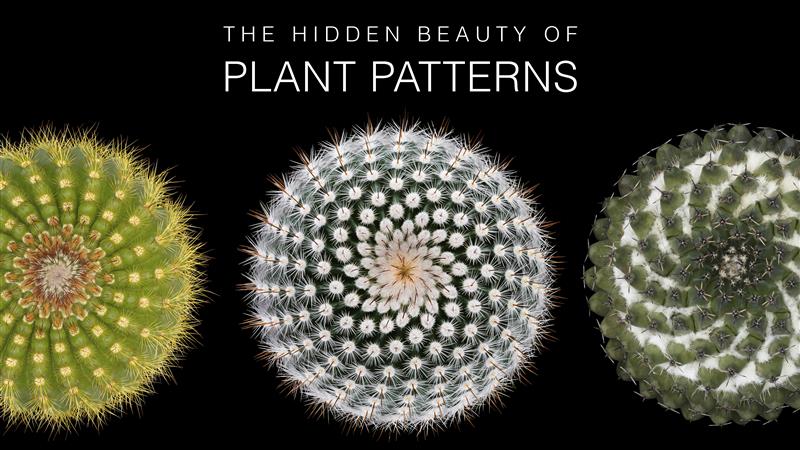
Art Exhibition: The Hidden Beauty of Plant Patterns
About the Exhibition: The Hidden Beauty of Plant Patterns Discover the mesmerizing world of cacti and succulent plants through Victor Mozqueda’s recent project. As a nature photographer, Victor captures the unique charm and intricacies of these desert plants, showcasing their stunning forms and colors in a captivating way. Dive into the world of cacti through...
- art exhibitions
- exhibits
-
May 3 - Sep 15, 202510:00 AM - 4:00 PM | Weekdays Only
-
May 3, 20259:00 AM - 2:00 PM | Opening Reception11:00 AM - 11:30 AM | Presentation by Artist & Author
- Location Botanical Research Institute of Texas

Members-Only Quiet Hour Walk
Step into serenity every Saturday with our new weekly Members-Only Quiet Hour Walk. It’s a peaceful start to your weekend at FWBG! What to Expect: A 60-minute silent walk led by a mindfulness guide Gentle movement breaks using easy-to-follow practices A peaceful, grounding experience focusing on the senses Note: The path includes uneven...
- adult education classes
- classes
- events
- free for members
- health & wellness
- learn
- members-only events
-
Date
Sep 20, 2025
- Time 7:30 AM - 8:30 AM
- Location Leonard Courtyard

Members-Only Quiet Hour Walk
Step into serenity every Saturday with our new weekly Members-Only Quiet Hour Walk. It’s a peaceful start to your weekend at FWBG! What to Expect: A 60-minute silent walk led by a mindfulness guide Gentle movement breaks using easy-to-follow practices A peaceful, grounding experience focusing on the senses Note: The path includes uneven...
- adult education classes
- classes
- events
- free for members
- health & wellness
- learn
- members-only events
-
Date
Sep 27, 2025
- Time 7:30 AM - 8:30 AM
- Location Leonard Courtyard

Bella’s Book and Nature Club: October
Click here to register now! Children 18 months to 5 years and their families are invited to join Bella the Begonia at BRIT on the first Wednesday of each month. We’ll discuss nature, read a story, sing and move, plus a family nature challenge! Registration for this program is by family rather than participant and...
- children & family programs
- free for members
- learn
-
Date
Oct 1, 2025
- Time 10:30 AM - 11:30 AM
- Location Botanical Research Institute of Texas
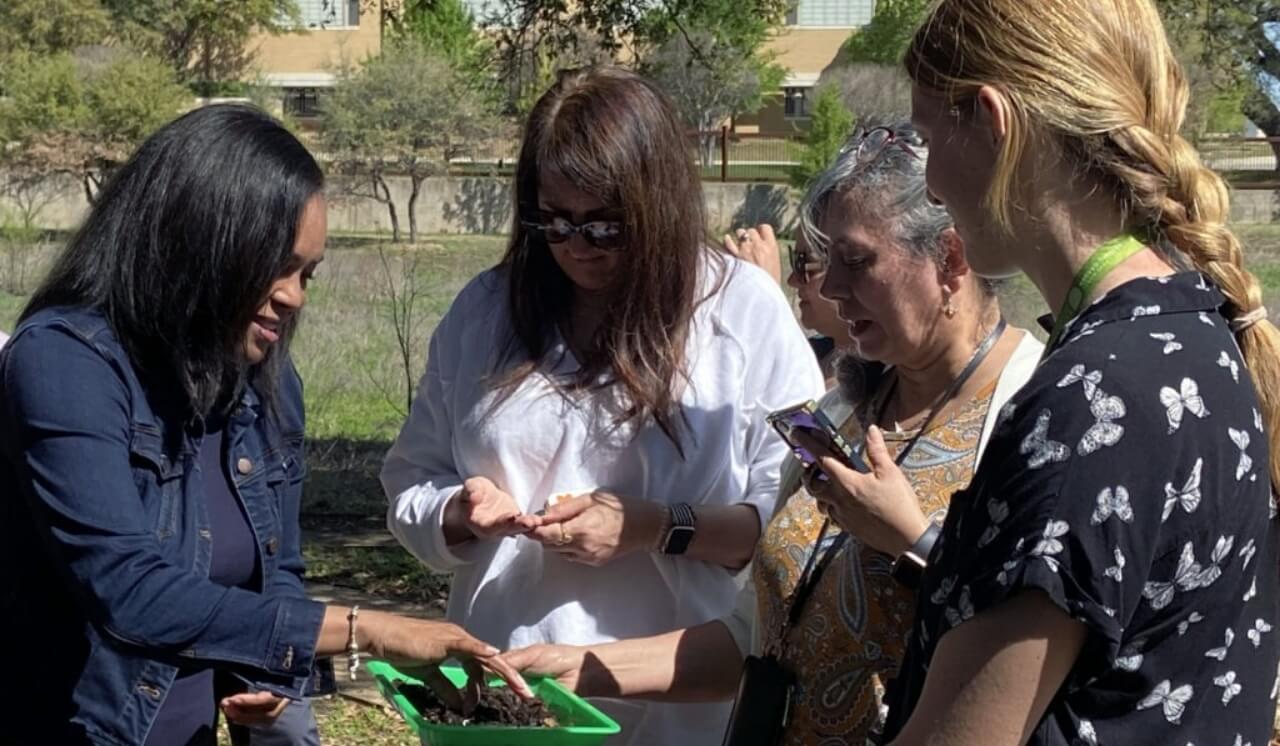
Early Childhood Impact Series
Expand your science inquiry and outdoor learning skills as an Early Childhood Educator! This Impact Series brings together engaging guest speakers and interactive breakout sessions to deepen your understanding of environmental STEM and outdoor education tailored for young learners. Here’s what you can look forward to: What You’ll Gain: Collaborate with fellow local educators to...
- educator professional development
- learn
- school programs
-
Oct 4, Nov 15, Feb 7, May 2

Members-Only Quiet Hour Walk
Step into serenity every Saturday with our new weekly Members-Only Quiet Hour Walk. It’s a peaceful start to your weekend at FWBG! What to Expect: A 60-minute silent walk led by a mindfulness guide Gentle movement breaks using easy-to-follow practices A peaceful, grounding experience focusing on the senses Note: The path includes uneven...
- adult education classes
- classes
- events
- free for members
- health & wellness
- learn
- members-only events
-
Date
Oct 11, 2025
- Time 7:30 AM - 8:30 AM
- Location Leonard Courtyard

Dog Days: October
This weekend is bound to be a doggone good time! Enjoy two full days of hanging out with your pup in the beauty of the Garden on October 11-12. Dog Days will be held during regular Garden hours (8 a.m. – 5 p.m.), with regular admission for humans and an additional $5 per dog. Hydration...
- dog-friendly events
- events
- family-friendly events
- free for members
-
Date
Oct 11 - 12, 2025
- Time All Day

Members-Only Quiet Hour Walk
Step into serenity every Saturday with our new weekly Members-Only Quiet Hour Walk. It’s a peaceful start to your weekend at FWBG! What to Expect: A 60-minute silent walk led by a mindfulness guide Gentle movement breaks using easy-to-follow practices A peaceful, grounding experience focusing on the senses Note: The path includes uneven...
- adult education classes
- classes
- events
- free for members
- health & wellness
- learn
- members-only events
-
Date
Oct 18, 2025
- Time 7:30 AM - 8:30 AM
- Location Leonard Courtyard

Members-Only Quiet Hour Walk
Step into serenity every Saturday with our new weekly Members-Only Quiet Hour Walk. It’s a peaceful start to your weekend at FWBG! What to Expect: A 60-minute silent walk led by a mindfulness guide Gentle movement breaks using easy-to-follow practices A peaceful, grounding experience focusing on the senses Note: The path includes uneven...
- adult education classes
- classes
- events
- free for members
- health & wellness
- learn
- members-only events
-
Date
Oct 25, 2025
- Time 7:30 AM - 8:30 AM
- Location Leonard Courtyard

Bella’s Book and Nature Club: November
Click here to register now! Children 18 months to 5 years and their families are invited to join Bella the Begonia at BRIT on the first Wednesday of each month. We’ll discuss nature, read a story, sing and move, plus a family nature challenge! Registration for this program is by family rather than participant and...
- children & family programs
- free for members
- learn
-
Date
Nov 5, 2025
- Time 10:30 AM - 11:30 AM
- Location Botanical Research Institute of Texas

Dog Days: November
This weekend is bound to be a doggone good time! Enjoy two full days of hanging out with your pup in the beauty of the Garden on November 8-9. Dog Days will be held during regular Garden hours (8 a.m. – 5 p.m.), with regular admission for humans and an additional $5 per dog. Hydration...
- dog-friendly events
- events
- family-friendly events
- free for members
-
Date
Nov 8 - 9, 2025
- Time All Day

Members-Only Quiet Hour Walk
Step into serenity every Saturday with our new weekly Members-Only Quiet Hour Walk. It’s a peaceful start to your weekend at FWBG! What to Expect: A 60-minute silent walk led by a mindfulness guide Gentle movement breaks using easy-to-follow practices A peaceful, grounding experience focusing on the senses Note: The path includes uneven...
- adult education classes
- classes
- events
- free for members
- health & wellness
- learn
- members-only events
-
Date
Nov 8, 2025
- Time 7:30 AM - 8:30 AM
- Location Leonard Courtyard

Free Admission Day: Veteran’s Day
Spend Veterans Day at the Fort Worth Botanic Garden with free entry, thanks to the support of Amazon, for all visitors on Tuesday, November 11. Whether you’re honoring a loved one or enjoying a peaceful day out, we invite you to explore the Garden’s seasonal beauty as a tribute to those who have served. Take a...
- events
- free admission days
-
Date
Nov 11, 2025
- Time All Day

Members-Only Quiet Hour Walk
Step into serenity every Saturday with our new weekly Members-Only Quiet Hour Walk. It’s a peaceful start to your weekend at FWBG! What to Expect: A 60-minute silent walk led by a mindfulness guide Gentle movement breaks using easy-to-follow practices A peaceful, grounding experience focusing on the senses Note: The path includes uneven...
- adult education classes
- classes
- events
- free for members
- health & wellness
- learn
- members-only events
-
Date
Nov 15, 2025
- Time 7:30 AM - 8:30 AM
- Location Leonard Courtyard

Members-Only Quiet Hour Walk
Step into serenity every Saturday with our new weekly Members-Only Quiet Hour Walk. It’s a peaceful start to your weekend at FWBG! What to Expect: A 60-minute silent walk led by a mindfulness guide Gentle movement breaks using easy-to-follow practices A peaceful, grounding experience focusing on the senses Note: The path includes uneven...
- adult education classes
- classes
- events
- free for members
- health & wellness
- learn
- members-only events
-
Date
Nov 22, 2025
- Time 7:30 AM - 8:30 AM
- Location Leonard Courtyard

Members-Only Quiet Hour Walk
Step into serenity every Saturday with our new weekly Members-Only Quiet Hour Walk. It’s a peaceful start to your weekend at FWBG! What to Expect: A 60-minute silent walk led by a mindfulness guide Gentle movement breaks using easy-to-follow practices A peaceful, grounding experience focusing on the senses Note: The path includes uneven...
- adult education classes
- classes
- events
- free for members
- health & wellness
- learn
- members-only events
-
Date
Dec 6, 2025
- Time 7:30 AM - 8:30 AM
- Location Leonard Courtyard

BRIT Reads Book Club: “Brave the Wild River” by Melissa L. Sevigny
Please note that this month we meet on the second Monday of the month. Do you love to read? Are you passionate about botany, natural history, sustainability and similar topics? Then, you’ll love the BRIT Reads Book Club! This informal group meets every other month to discuss a chosen book, in-person or online. We begin...
- adult education classes
- events
- free
- learn
- lectures & talks
-
Date
Dec 8, 2025
- Time 12:00 PM - 1:00 PM
- Location BRIT Library

Members-Only Quiet Hour Walk
Step into serenity every Saturday with our new weekly Members-Only Quiet Hour Walk. It’s a peaceful start to your weekend at FWBG! What to Expect: A 60-minute silent walk led by a mindfulness guide Gentle movement breaks using easy-to-follow practices A peaceful, grounding experience focusing on the senses Note: The path includes uneven...
- adult education classes
- classes
- events
- free for members
- health & wellness
- learn
- members-only events
-
Date
Dec 13, 2025
- Time 7:30 AM - 8:30 AM
- Location Leonard Courtyard

